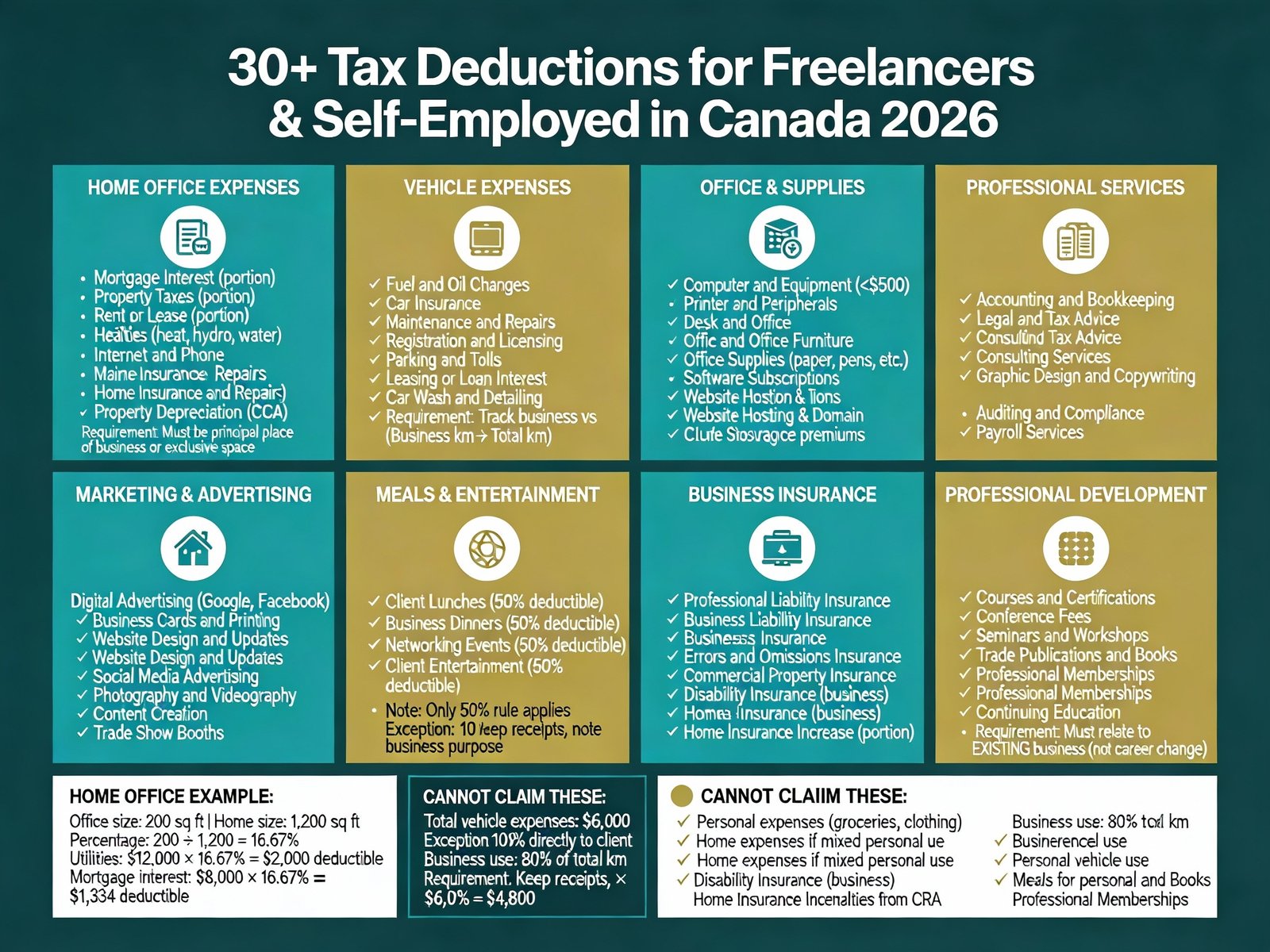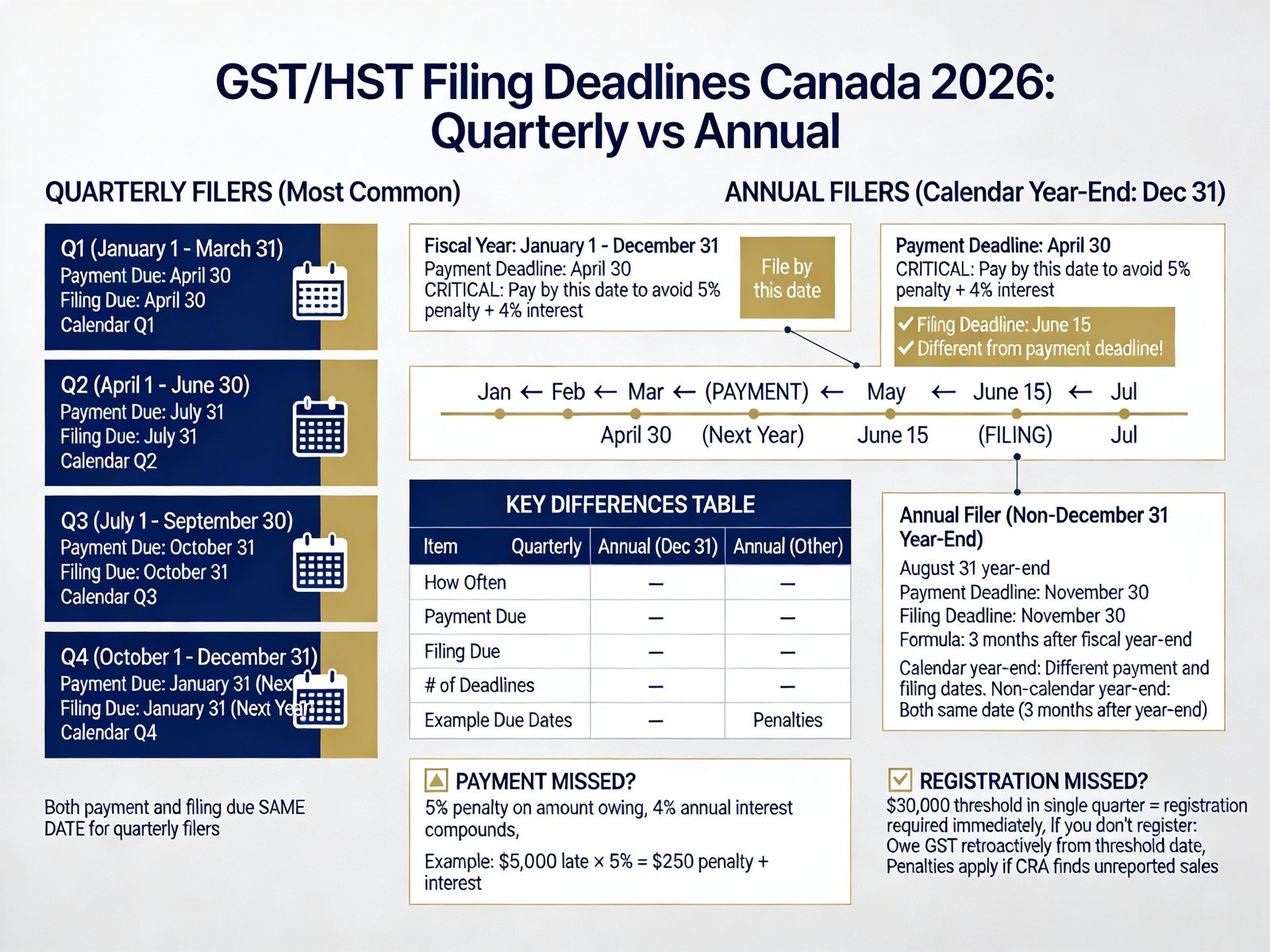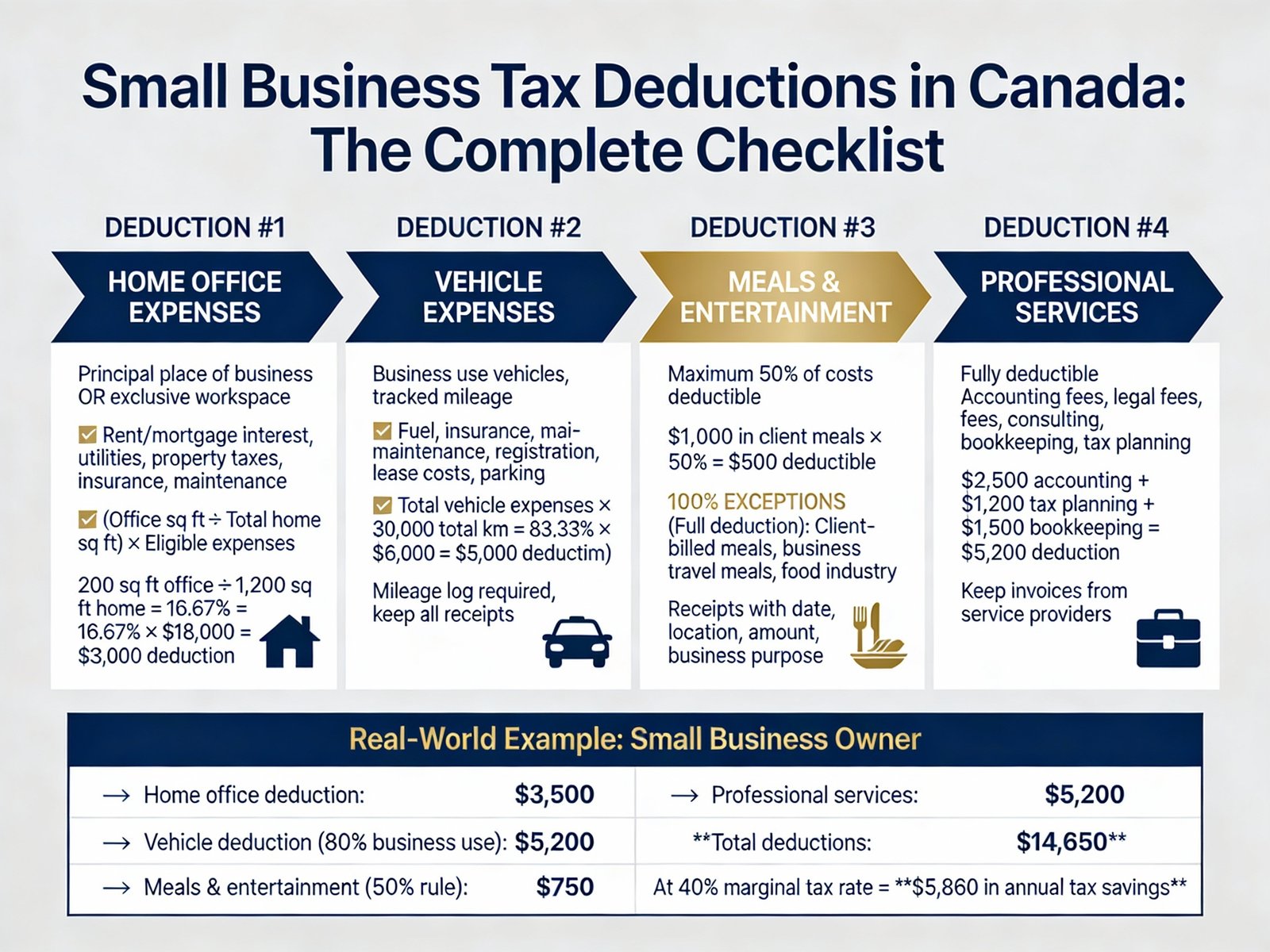Every year millions of Canadians file a tax return that shows income they earned from a job. Most people simply copy the numbers from their T4 slip into the right boxes on the return and move on. That works fine when you have only regular wages and nothing extra. But many workers also receive car allowances, free parking, group insurance, gifts, or cash awards. Some repay commissions, buy supplies for work, or live for weeks at a remote camp.
The Canada Revenue Agency uses Sections 5 and 6 of the Income Tax Act to decide which job-related amounts are taxable, which ones are tax-free, and in rare cases when an employee can claim a loss. If you understand these two sections, you will know exactly what to report and what you can safely leave out. This easy-to-read article walks through all the main rules in plain language and gives practical examples you can use right away.
1 Key words and ideas
Employment income – Salary, wages, overtime, holiday pay, bonuses, commissions, tips, and any other cash you receive because of your job.
Allowance – A flat amount your employer gives you to cover costs such as travel or cell phone service without asking for every receipt.
Benefit – A perk or advantage you enjoy because of your job, for example free parking, a company car for personal driving, employer-paid life insurance, or an interest-free loan.
Standby charge – The taxable value of having a company car available for personal use.
Operating cost benefit – The extra taxable value when the employer also pays personal fuel, maintenance, or insurance for that company car.
Form T2200 – A short form your employer signs to confirm you must pay certain job expenses from your own pocket. Without this form you usually cannot deduct those expenses.
2 The basic rule for employment income (Section 5)
Section 5 is the foundation. It says your income from a job for the calendar year is every dollar of salary, wages, tips, commissions, and other cash amounts you actually receive in that year. If your employer delays a bonus until January, you do not report it until the next tax year.
Simple example:
– Zoe earns a salary of 60,000 dollars from January to December 2025.
– She also receives a year-end bonus of 5,000 dollars on 3 January 2026.
– Zoe reports 60,000 dollars on her 2025 return and the 5,000 dollars on her 2026 return.
Section 5 also allows the strange idea of a loss from employment. Most employees will never have one, but it can happen. A loss appears when the expenses you are allowed to deduct with a signed Form T2200 are bigger than the cash income you receive from that job. If this rare situation occurs, you can use the loss to reduce other income in the same year or carry it forward.
3 Cash payments you must include
The list below covers the most common items that belong in income. All of them should show on your T4 or T4A slip, but even if the slip is wrong you must still report the income.
- Regular salary, wages, and overtime
- Holiday pay and paid leave cash-outs
- Performance bonuses, safety bonuses, signing bonuses
- Commissions from sales or recruiting
- Controlled tips (tips pooled and paid out by the employer)
- Direct tips (money the customer hands to you)
- Retroactive pay increases paid in a lump sum
- Director fees if you are on a board
- Honoraria paid for guest speaking or short-term teaching
If a customer gives you a gift card as a tip, CRA treats the card as cash and you must include its value.
4 Allowances – flat payments that might look tax-free
Many companies like to pay a flat monthly amount to keep paperwork low. Unfortunately, most flat allowances are 100 percent taxable.
4.1 Vehicle allowances
You may receive a car allowance to use your own vehicle for deliveries, sales calls, or site visits. A reasonable per-kilometre allowance is tax-free. In 2025 CRA says a reasonable allowance is 70 cents per kilometre for the first 5,000 kilometres and 64 cents for each kilometre after that (territories add 4 cents). Your employer must track your kilometres and pay only the exact rate. If the employer gives you any other rate or a flat monthly amount, the allowance is taxable and you must include it in income.
4.2 Telephone and internet allowances
If the company pays the phone bill directly to the carrier and personal use is modest, there is no taxable allowance. If the company gives you 50 dollars a month in cash to “help” with your phone or internet, that 50 dollars is taxable every month.
4.3 Living allowances
Oil-patch and mining workers often get site or camp allowances. If the location is considered a special work site or a remote location (explained later), the allowance can be tax-free. Anywhere else, the payment is taxable.
5 Taxable benefits – perks that turn into income (Section 6)
Section 6 contains a long list of perks that count as income unless an exemption applies. The basic principle is easy: If your employer gives you something personal that you would normally pay for yourself, the value of that thing is taxable.
Below are the most common benefits and their rules.
5.1 Automobile benefits
If you drive a company-owned or company-leased vehicle and you can also use it for personal trips, two separate benefits arise.
Standby charge – This is the basic benefit for having the car available. The usual formula is 2 percent of the manufacturer’s suggested retail price for every month the car is available, or two-thirds of the monthly lease cost. If business driving is more than 50 percent of total kilometres and you keep a logbook, you can cut the standby charge in half.
Operating cost benefit – If the employer also pays for fuel, maintenance, and insurance, an extra benefit applies. CRA’s 2025 rate is 33 cents for every personal kilometre. If business use stays above 50 percent and you give your employer written notice by 31 December, you can instead claim one-half of the standby charge as the operating benefit.
How to lower the tax: Drive mostly for business, repay part of the costs to the company within 45 days of year-end, and keep an accurate logbook.
5.2 Parking
Free or subsidised parking is taxable unless one of three exceptions applies:
- Parking is provided to all employees, even those who do not need it for work.
- You have a disability and need the parking spot for easier access.
- The spot is in a remote or unstaffed location where public parking is already free.
The taxable value is the fair market rate for a similar spot at that location.
5.3 Gifts and awards
CRA allows employers to give non-cash gifts and awards with a total value of up to 500 dollars per calendar year tax-free. Anything above that is taxable. Gift cards, prepaid visas, or cash are always taxable no matter the amount. Employer-paid parties are tax-free if the cost is 150 dollars or less per person.
5.4 Meals and lodging
Employer-paid meals during overtime can be tax-free if the meal is reasonable in value, taken at the work site, and occasional. Free meals in a staff cafeteria at below-cost prices are taxable if the subsidy is significant. Lodging at a camp or hotel is tax-free when you qualify for the special work-site relief described in Part 7.
5.5 Group insurance and disability plans
Employer payments for health, dental, and life insurance are usually tax-free when paid. Disability premiums are different: if the employer pays them, any disability payments you later receive will be fully taxable. Some employees choose to pay the premiums themselves so that future disability income stays tax-free.
5.6 Loans from the employer
If you get an interest-free or low-interest loan from your employer, you must include a benefit equal to the interest you would have paid at CRA’s prescribed rate minus any interest you actually paid within 30 days of the year-end.
5.7 Education benefits
If the company pays tuition for courses that directly relate to your current job, the benefit is usually tax-free. Tuition for unrelated personal interest or a family member’s education is taxable.
6 Special work-site and remote-location relief
Canada is large and some projects are far from any town. Section 6 offers relief so employees do not pay tax on board, lodging, and travel home from these sites.
To qualify, all of the following points must be true:
- The duties at the site are temporary.
- The site is at least 80 kilometres from the nearest town with commercial accommodation or you keep a self-contained home at another location that you cannot reasonably return to daily.
- You stay at the site for at least 36 hours.
If you meet these conditions, the employer can provide free meals, lodging, and travel back home tax-free. Always keep copies of the travel policy and your rotation schedule in case CRA asks for proof.
7 When an employee can claim a loss
A loss from employment is rare but possible. You need three things:
- A signed Form T2200 stating that you must pay certain expenses and receive no reimbursement.
- Actual expenses that fit the rules in Section 8, such as supplies directly used in your work, vehicle costs for required travel, or home-office costs when your home is your main work space.
- Expenses larger than your employment income from that job.
Any loss you create with valid expenses can offset other income such as rental or investment income in the same year. If the loss is more than total income, it becomes a non-capital loss you can carry forward up to 20 years.
8 Records the CRA likes to see
The best way to survive a CRA review is to keep neat, dated evidence. Below is a short list of records and how long to keep them.
- Mileage logbook – Keep for six years from the end of the latest year the log supports.
- Fuel, maintenance, and insurance receipts – Same six-year rule.
- Phone and internet bills – Two years is often enough, but keep six if you deduct part of the cost.
- Gift and award register – Record date, item, value, and employee name.
- Meeting minutes for director fees – Six years from the latest year.
- Form T2200 – Keep as long as you claim related expenses plus six years after.
Digital scans are fine as long as they are clear and stored safely in Canada.
9 Smart planning tips for employees
- Use a mileage app so you never forget to log business trips.
- Repay personal fuel for the company car within 45 days of year-end to cut the operating benefit.
- Ask to switch a flat allowance to a reimbursement with receipts whenever possible.
- Keep proof when you repay commissions or salary advances. Those repayments can offset income.
- Review your pay stub every month and fix benefit errors before T4 season.
10 Smart planning tips for employers
- Run an automobile-benefit estimate each fall and tell employees early so they can adjust logbooks or make repayments.
- Adopt a gift policy that keeps non-cash gifts under the 500-dollar annual limit.
- Pay phone and internet bills directly instead of handing out flat allowances.
- Collect mileage logs monthly, not at year-end, to spot gaps while memories are fresh.
- Prepare T2200 forms as soon as work-from-home policies are approved, not two days before the February deadline.
11 Questions people ask all the time
Q: My employer gives me 600 dollars a month for my own car. Is any part of it tax-free?
A: No. A flat amount is fully taxable. Only a per-kilometre rate at or below CRA’s reasonable rate is tax-free.
Q: I use my personal phone for work. The company pays half the bill directly to the carrier. Is that taxable?
A: No, because the payment is based on the actual invoice and covers only the business share.
Q: Are free coffee and donuts at the office taxable?
A: No. Modest refreshments available to all staff are always tax-free.
Q: My employer paid my MBA tuition. Is that taxable?
A: It depends. If the course improves skills you need for your current job or a likely promotion within the company, the tuition is tax-free. If it is mostly personal development, the amount is taxable.
Q: I pay union dues. Where do those go?
A: Union dues are not an employment benefit. You claim them later in the return as a deduction on Line 21200.
12 End-of-year checklist
Employees
– Review your mileage log and update missing trips.
– Check year-to-date taxable benefits on your pay stub.
– Repay any personal expenses to the company before 31 December.
– Gather phone, home-office, and supply receipts if you have a valid T2200.
– Save copies of any disability or insurance premiums you paid yourself.
Employers
– Finalize automobile and parking benefit numbers in December.
– Update the gift and award register.
– Confirm remote-site or special-work-site employee lists.
– Prepare T2200 forms for staff who qualify.
– Remind employees about repayment deadlines for personal car costs.
14 Final thoughts
Employment income rules look detailed, but the principles are simple. Cash you receive is taxable. Allowances are taxable unless they follow CRA’s exact rules. Perks are taxable unless a clear exemption applies. Keep good records, ask questions early, and most problems disappear before the tax return is due.
Need personal advice? Call a BOMCAS Canada qualified tax professional at 780-667-5250 or email info@bomcas.ca or reach out to CRA’s enquiries line. Paying attention now saves stress later.










 View Our Location
View Our Location





 181 Meadowview Bay, Sherwood Park, AB T8H 1P7, Canada (Online Clients Only)
181 Meadowview Bay, Sherwood Park, AB T8H 1P7, Canada (Online Clients Only)